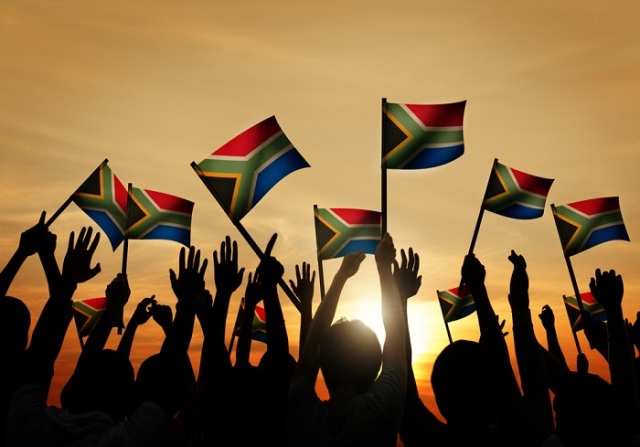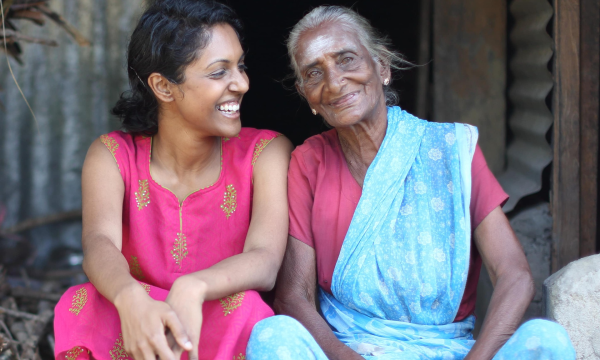
South Africa - a country that the sensationalist media associate with freedom. They start telling you about Nelson Mandela and then move on to black liberation. They paint a pretty picture of hope in a country where a white elite still lives large and leaves little for the rest of us.

A country still governed behind the scenes by a ruling elite that owns the economy of our country. The ones who still believe that forms of black and brown identity should only be expressed in the townships and units they created for us decades ago. Liberation exists moderately where black and brown identities are still policed by white imperial laws.
Freedom is still an extremely loose term in a country where the stench of hatred and oppression parallels what we see in the U.S.A.
Yet I find that a large bastion of white supremacy is actually made up of brown people who feel they need to act on behalf of white people and whitesplain issues faced by an economically oppressed majority.
Why is this so?
Why do brown people choose to be the mouth pieces of their old masters?
We live in a country where it has become the norm to speak openly about black corruption and to a lesser extent brown corruption. However, a topic of white corruption amongst brown people is not tolerated. It causes eye rolls and utterances of, “Oh no, not this again. Apartheid is over, just get over it.”
It has just become a habitual process for brown people to believe that white people were only capable of corruption during apartheid, and have now morphed into benevolent saviors ready to take down black corruption. Yet it is the same brown people who would be in denial about scandals that have rocked white run investment firms, the mining industry, and even tertiary institutions. It has become a ritual in the lives of South Africans to rinse and repeat the Gupta saga, but never quite understand the never-ending black exploitation by unchanged white systems of power.
Brown people hurl stones at black politicians for living lavishly off taxpayer money but never question how a white politician does the same thing with the white capital they inherited from the old apartheid government. A capital accrued from the mismanagement of local government funds and dirty deals made with oppressive regimes from abroad.
Why do brown people sheepishly bleat about black corruption but remain pacifists towards white corruption?
Is the psychology behind this actually tied to the past?
In 1994, many brown people supported The National Party (the ruling party during the apartheid era). When asked why, with candidness in their comments, they said that the white man did a lot for them.
There are a number of brown people that would tell you that they wish they went back to the old days of segregation. This was because they were given the illusion of safety and a slight decorum of dignity. They were transformed into a middle-income working force that was still manned by a white master.
Social media has become a platform where brown people have been found not only to protect whiteness but forms of imperialism.
When some brown people supported the #rhodesmustfall* campaign, they were basically told to shut their mouths by other brown people because white men like Cecil John Rhodes brought our people here and gave us a better life. They were told to be thankful for the fact that a large majority of white taxes built hospitals and paved our roads, and still keep the country running. They were told that colonization advanced their lives.

When the #feesmustfall campaign gripped our country, many brown people shared images of black people breaking into a university cafeteria and stealing food. Yet they stayed quiet about the footage of white students running over peaceful black protestors with their cars. Many brown people supported the #feesmustfall campaign when white people learned their voices to it, but spoke against it when it was primarily supported by black people the following year.
Brown people laughed and shared footage of black protestors getting assaulted by white students during a rugby match at the University of the Free State. A university that once dropped charges against a group of white males for feeding a black cleaner food they urinated on. A university situated in a province that is well known for its racial incidents.
Could it be that there was a problem at the university and that the blacks were mistreated somehow?
These were not the questions brown people asked themselves. Instead, they just shared pictures of white boys helping the wounded. With captions that read “not all whites are racist.” Once again tarnishing blackness but saving the blushes of whiteness.
Could brown people behave this way because many of us live in our brown bubbles, never laying foot in other parts of the country or the world and not understanding the ramifications that come with not having white skin? Could it be that we became so complacent about sitting below the white man on the middle rungs of the social ladder? Could it be that we remained happy because it wasn't the lowest rung on the ladder?
We know racism but do we really know RACISM?
The truth is that many brown people love whiteness and viciously pursue it as a golden standard. This is observed with SOME brown people who behave like dating or marrying a white person is the greatest accomplishment in life. Our communities are structured to believe that a relationship with a white person is a form of progressiveness.
But if a brown person dates or marries a black person, they are seen as the lowest life forms, damaged goods and people that nobody else wants to date. Their offspring are seen as aberrations.
Social media has also become a platform for brown ignorance and blatant chauvinism. It has exposed elevated levels of brown privilege.
For example, a black male took to Facebook complaining about his mother, a domestic worker, never getting paid in cash during the Diwali period. Instead, she was given sweetmeats as her earnings for the day. Brown people went onto ridicule him by making statements such as, “OMG! I thought we were the only ones that did that.”
Brown privilege and ignorance doesn’t just stay on social media but extends to ever-present issues.
It is always a brown sentiment to associate black people with crime, yet totally ignore the brown on brown violent crime in the brown suburbs. We are in denial about the rot in our communities. People don’t want to accept that crime is a colourless symptom of a disease - a direct result of oppression and the inability of ones succeeding generations to attain the kind of wealth others have, thus creating desperate people.
And desperate people do dangerous things.
Many privileged brown people utter the phrase blacks want something for nothing, once again racially associating one race group with poverty and not fully understanding that it affects a multitude of races. They believe that if poor people worked harder they will uplift themselves. But how can the poor uplift themselves when they are either paid with sweetmeats or old clothes? How can a person uplift themselves when they are not paid the right amount for all the heavy labor they do?
How did a previously oppressed minority become such an apathetic bunch of elitists?
There is always animosity in the job market where black and brown people fight for positions. And in our quest, we ignore a fundamental truth in that we are not each other's enemies and that both racial groups are fighting for bread crumbs that are thrown from pale white fingers.
Brown privilege and a love for whiteness are best displayed in cultural arenas of brownness where leaders speak against westernization, but in so many ways defend and practice forms of white supremacy. An arena where we observe a fake love for blackness, a fake love that is used as a tool to gain funding and alleviate ones inner poverty, but ultimately a lie that enforces systems of brown privilege.
Not every white person is a rabid racist. Some are aware of their privilege while others are not. Some feel guilt for the past actions of their ancestors while others are happy that they amassed a large amount of wealth through the exploitation of others.
I am in no way advocating hatred towards white people. Nor do I believe that all brown people are a narrow-minded elite hell-bent on dragging poor people down. I am in no way saying that some black people do not possess their own prejudices towards brown people. But I understand that a black man’s dislike for me comes from a place of pain, whereas a white man’s comes from a place of privilege and just pure unmotivated hatred.
There is a huge gap between the super-rich and the super-poor in South Africa. And sometimes our elitist attitudes help in extending that gap. The rot begins to set in when we start to see crime and corruption as only one colour. The rot manifests further when we gain a share of wealth and believe we are entitled to speak for the poor and their struggle for survival.
If we can be conditioned to love whiteness then we can be reconditioned to feel empathy for those struggling, in a hope that our humanity will help us find a solution to the perplexing question of equity in our land.

*A campaign that was dedicated to removing a statue of Cecil John Rhodes situated in the University of Cape Town.

























